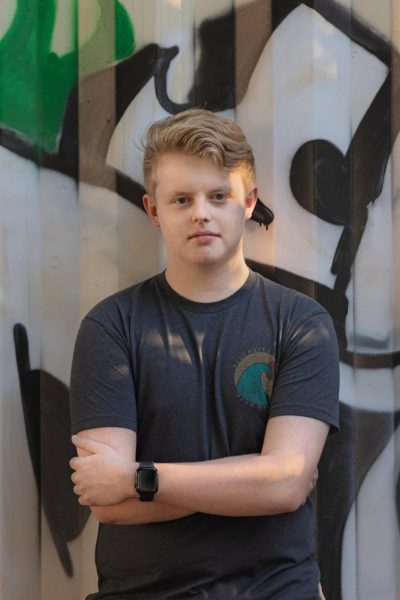Not every student’s interests fit the mold of the degree programs traditionally offered at their university. That was the problem John F. Cruz ran into when he started his time at the University of Utah in the 1970s.
Cruz was a computer science major. His interests mainly concerned programming languages and business. So, when the focus of his degree shifted to other topics like hardware building, he had a hard time.
“I think if somebody’s focused on a program that they’re not entirely committed to and passionate about, you’re just going through the motions,” Cruz said. “And I was struggling in computer science. I was going to the classes, but I didn’t enjoy it.”
That changed in 1979, when Cruz learned about a unique option offered by the U: the Bachelor of University Studies program.
It gives students the chance to create an individualized major outside of existing degree plans. The U still offers this program today. Jim Agutter, senior associate dean in the Office of Undergraduate Studies and director of the Bachelor of University Studies program, said it normally involves bringing together areas of interests from multiple education pathways.
“Depending on their academic goals, whether that’s a graduate program or careers, I think it allows for a student to take ownership of their creative pathway guided by faculty at the university who have an expertise in that area to craft a program that gives them the best opportunity to achieve those goals,” Agutter said.
That was the case for Cruz. He said his individualized major program bridged his specific interests in computer science and business. When it came to his first job selling point-of-sale systems, he felt ready to take on the work that came his way.
“They were looking for somebody that could work with the client, the people in the stores and their computer programming guys. So it was exactly what my degree was designed for,” Cruz said.
Bachelor of University Studies students must meet with an advisor to begin designing their degree. They’ll then go on to work with Agutter to make a program proposal. The proposal is presented to the University Studies Committee for consideration and approval. It should establish a theme for the unique program and show why the U’s traditional degrees do not fit the student’s needs.
“From there, they identify a particular faculty member that has an expertise in this area, and that would be a faculty advisor that would go with that student,” Agutter said.
In the classroom, each student’s pathway looks unique. But, they must fulfill the university’s graduation requirements to complete their degree. Other graduation requirements include 56 upper-division credit hours and 44 credit hours in the major’s area of emphasis. Bachelor of University Studies programs all come to a close with a capstone activity.
“That capstone activity is really to synthesize all of the different information and skills that they’ve learned into a project, a thesis, a presentation that brings together all these disparate pieces and really articulates how they all work together and demonstrates the acquisition of skills and understanding that is within their particular pathway,” Agutter said.
Agutter estimates there are around 25 to 27 students who currently participate in the program. They usually receive around four to eight new applicants each year.
Those who have earned a Bachelor of University Studies degree have also given positive feedback. Agutter said by “owning their academic trajectory,” students have high success in achieving their goals. Cruz shared a similar sentiment.
“The [Bachelor of University Studies] allows them, if they have the courage, to step out of the standard light path that the university offers to long destiny. That’s what I see,” Cruz said.
e.crossley@dailyutahchronicle.com




